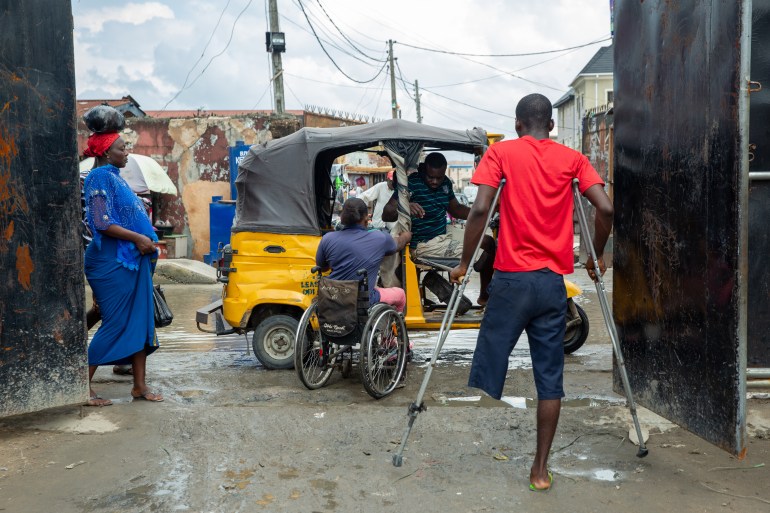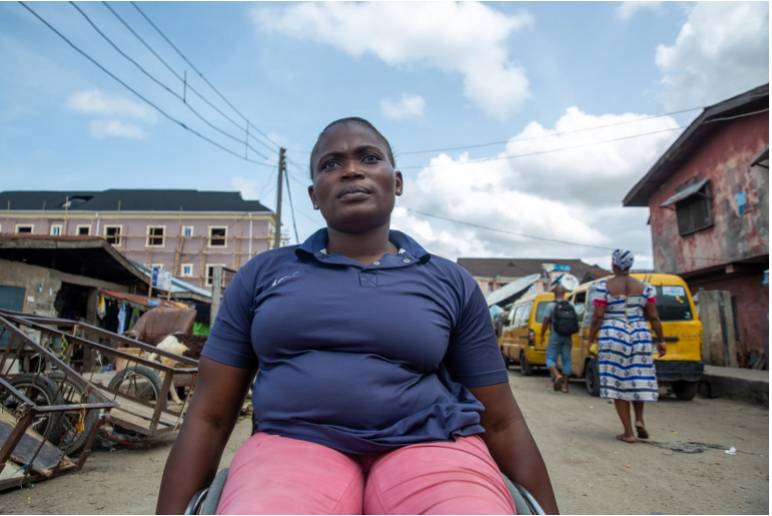Around the world, city populations are soaring. By 2050, some 68 percent of the world’s population is expected to live in urban areas, up from today’s 55 percent. Just three countries are responsible for about one-third of this growth – China, India, and Nigeria. But as cities expand, a large proportion of society continues to be marginalised and excluded — people with disabilities.
Unlike any other marginalised group, anyone can become a member of the disability community at any point in their life. People can develop a physical disability because of an accident, illness, or simply, old age.
Of the more than one billion people who have some form of disability, 80 percent live in the developing world.
According to the United Nations, people with disabilities include those who have “long-term physical, mental, intellectual or sensory impairments, which in interaction with various barriers, may hinder their full and effective participation in society on an equal basis with others”.
Nigeria’s Lagos, with its 15 million residents, is one of Africa’s largest cities and is among the fastest growing in the world. Notoriously congested roads, chaotic traffic and widespread poverty makes Lagos a tough city to live in and navigate. But add a lack of access to public transport and getting around becomes even tougher for people with disabilities.
So what does it mean to live in Lagos, one of the world’s megacities, with a disability?
Plans for safer roads, accessible transport
Using the current public transport is a leap of faith for many people with disabilities.
However, the Lagos Metropolitan Area Transport Authority in 2018 released a new non-motorised transport policy (NMT) to reduce congestion, injuries and deaths on the roads, noise and air pollution. The policy says “mobility planning should focus on people, not vehicles” and aims to prioritise walking, cycling and public transport over the use of cars.
Pavements are non-existent in many places so pedestrians and vehicles share roads where drivers can drive dangerously, and even against traffic. By creating new and upgraded footpaths, the policy aims to reduce pedestrian accidents and deaths.
The NMT also includes people with disabilities with the plans to incorporate ramps, tactile pavements with textured ground surfaces to warn and guide visually impaired people and other features at public transport stations.
As part of modernising the city’s transit system, the Lagos government is also building a light rail. The first two of the seven proposed lines are scheduled to become operational by the start of 2023. Lagos governor Babajide Sanwo-Olu has said it will be part of a wider system that will be “attractive, convenient, affordable, accessible and will reduce urban transportation challenges”.
Initiatives such as the NMT and laws including the Lagos State Special Peoples’ Law, which stipulates that public transport should be easily accessible for people with disabilities, and the federal Discrimination Against Persons with Disabilities (Prohibition) Act, assist and protects people with disabilities. However, one of the biggest challenges is the lack of implementation. For instance, the NMT committee to implement changes was inaugurated only three years after the announcement of the policy and there is no set date for completion.

Inaccessible cities: Lagos
Making cities accessible for people of all abilities is the first step towards true equity and inclusion.
To make Lagos more accessible, the city needs a taxi service that can take people with disabilities from their houses to the nearest accessible bus station, while public transport should become more accessible in line with the Lagos State Special People’s Law.
Without options to freely and independently move around the city, people with disabilities are forced to stay home and are invisible in Lagos’ public life.
Stuck in a vicious cycle, people with disabilities lack access to education, healthcare, employment, housing and systems of social protection. They face stigma, discrimination and even violence.
For Kelechukwu Ogu, a blind journalist from Lagos, being able to move and walk around Lagos freely and safely is critical. Over the years, his foot has slipped into gutters on the street and the possibility of getting stuck – and being hit by a vehicle – fills him with anxiety. Once, when he was 10 years old, he fell waist-deep into an open drain. No one stopped to help him out.
“My interaction with open drainages and the fear of being knocked down by a bike or car has trained me to endure hunger and deprivation while waiting for a sibling or neighbour to help me make purchases,” says Kelechukwu.




No comments yet
Be the first to share your thoughts!